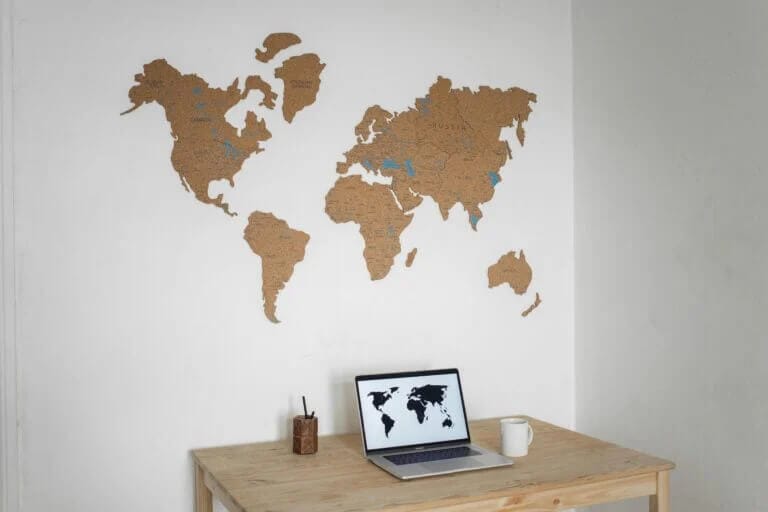This article was originally published on Harvard Business Review.
London. Barcelona. Beijing. The world’s business hubs are also desirable travel destinations. And yet, when we’re sent there for a conference or client meeting, many of us act like it’s a slog.
Unfortunately, most business travel advice goes something like this: Hunt for Wi-Fi like it’s water, stick to your itinerary, stay in a safe (read: sterile) hotel, and take care of yourself as best you can until it’s over. As someone who’s worked on or managed a remote team from 11 countries in the past year, I can think of no worse way to spend a trip.
Too many of us treat work travel as a curse. When I told some of my fellow start-up founders in the mid-’90s that I’d be taking an extended business trip to New Zealand, more than one predicted the death of my company. It was bad enough, they told me, that they’d had to relocate to Silicon Valley to find talent for their tech companies.

I admit, I struggled some days to sustain my sense of adventure. But I’d rented a beautiful home in Auckland with chickens in the backyard, and I’d brought my family with me, so I was committed. By the time I moved back to the U.S. in 2007, I’d realized that, in fact, it was the adventure itself that had sustained me. Although I sold my company, Netconcepts, in 2010, I kept the lesson my time in New Zealand had taught me: Adventure isn’t simply a seed; it’s the sunlight that keeps the tree growing.
I understand, of course, that most executives can’t just pick up stakes and move around the world like I did; what I don’t understand is why so many of them treat work travel as a chore. I don’t dispute that jet lag, time away from family, and lost luggage are a drag. But traveling is, or should be, one of the best parts of doing business.
The next time you travel for work, I want you to try something: Treat every moment as an adventure. Interact with the locals, avoid getting online, and take at least a day to do nothing but explore. While that might sound like a good way to lose your job, it’s possible to do it all while actually increasing your productivity.
Take connectivity. I invariably skip the in-flight Wi-Fi, not because it’s expensive or slow (which it usually is), but because I can use the time for “deep work.” I download my emails using the Mac Mail app and work through the tough ones while offline. It’s incredible how much I can accomplish without the distractions of social media.
Some savvy travelers take this even further. Productivity expert Tiago Forte, whom I recently hosted on my podcast, has spent months working in Mexico City without a local SIM card. Not only has he managed to get by without mobile internet, but it’s made him so productive that he’s actually planning to keep this arrangement after he moves there permanently next year. By cutting out distracting calls and texts, Forte provides himself with something most business travelers don’t: predictable time off. Those built-in breaks, according to research conducted by Harvard Business School professor Leslie Perlow and women’s leadership expert Jessica Porter, promote professional development, open communication, and quality of work. When Forte needs to plug back in, he simply stops by one of Mexico City’s thousands of cafés.

What if something urgent comes up while you’re traveling? Have a virtual assistant (VA) handle it. I ask mine to review my messages and place urgent ones in an “action” folder. I also, however, lean on my VAs as guides: Rather than, say, hiring college students from a freelance platform like Upwork, I instead look for assistants who live where I’ll be traveling, for example via local online job markets like onlinejobs.ph, a Filipino jobs site. Yes, my assistant-as-guide method does mean that I need to hire different VAs for different trips. But frankly, VA work like sorting emails and making reservations takes little training. To me, spending an extra couple of hours to show a VA the ropes is a small price to pay for a de facto travel advisor.
If you can’t afford to hire a VA, consider whether the person you’re traveling to see can help. When I was last in Romania visiting a client, I asked about his favorite restaurants and things to do. Not only was it a great ice breaker, but it led me to local-favorite places I never would’ve experienced otherwise.
True, it can be tough to squeeze in time for tourism between conferences and client meetings. But if you’re traveling for work, chances are that you’re someone who takes team members (or at least yourself) into uncharted territory. Think of exploratory time as practice in spotting and seizing new opportunities. For example, I recently took a five-month trip to Israel. I could’ve kept my head down like most business travelers — but if I had, I’d have missed out on much of what made it a productive trip. In Tel Aviv, I met an author and entrepreneur who introduced me to his network. And because it’s a short hop from Israel compared to the United States, I took on a speaking gig in Vienna that I typically wouldn’t have, where I learned so much that I wound up staying for the entire training intensive.
Even on a short business trip, there are more accessible ways to bring the adventure back to business travel. Stay in an Airbnb instead of a hotel. Stop into a museum after a meeting. Eat food that you can’t get at home. The point is: try something new.
One of my favorite books, How to Be a People Magnet, calls this “scrambling.” Going beyond your comfort zone facilitates future connections because people want to talk to others who share their interests.
Even trying experimental technologies while traveling can feel like an adventure. Not long ago, I discovered one of my favorite travel gadgets, HumanCharger. I admit it sounds a little kooky — the iPod-Nano-like device shines blue light into the ear canal and onto light-sensitive regions of the brain — but I’ve found it does wonders for jet lag.
No matter its scale or shape, adventure isn’t the enemy of business. To the contrary, trying new things, working with people of all stripes, and improvising in complex situations are the “soft” skills employers work so hard to teach. They may be uncomfortable, but they’re part of the adventure — and that’s what so many business travelers seem to be forgetting.







